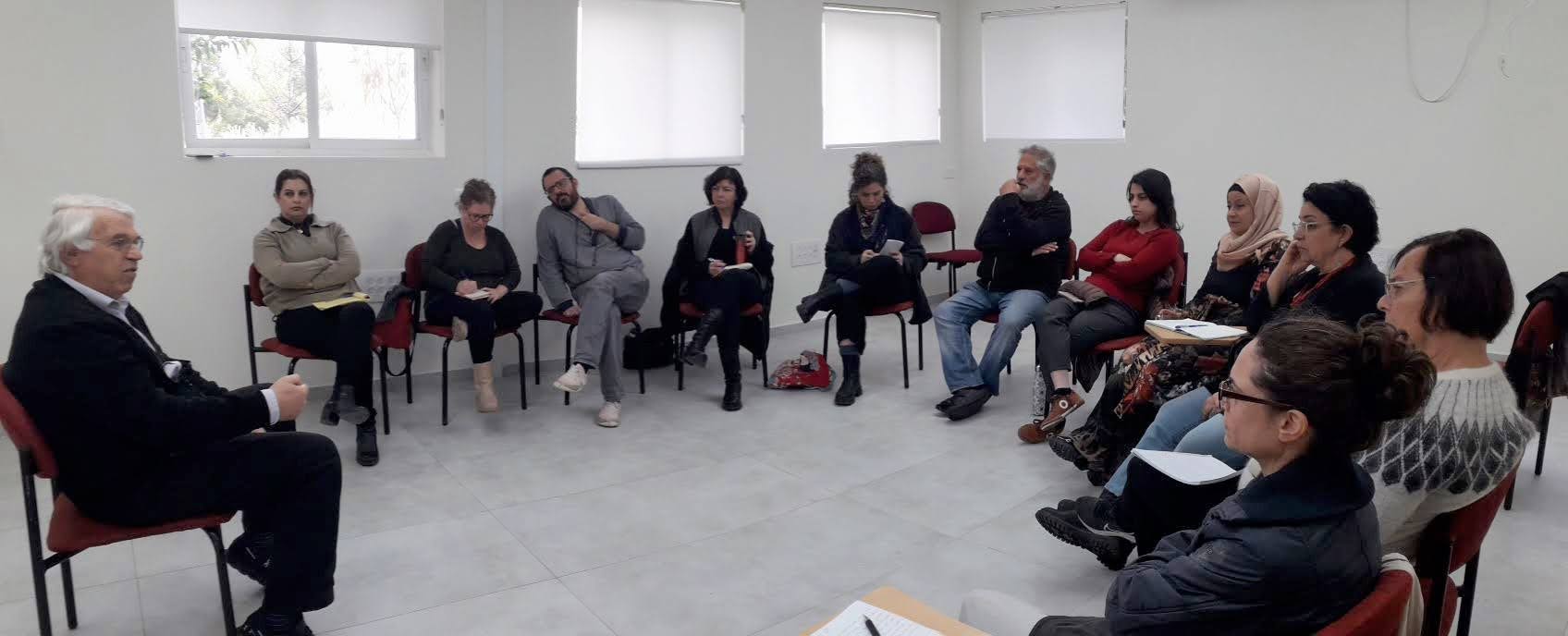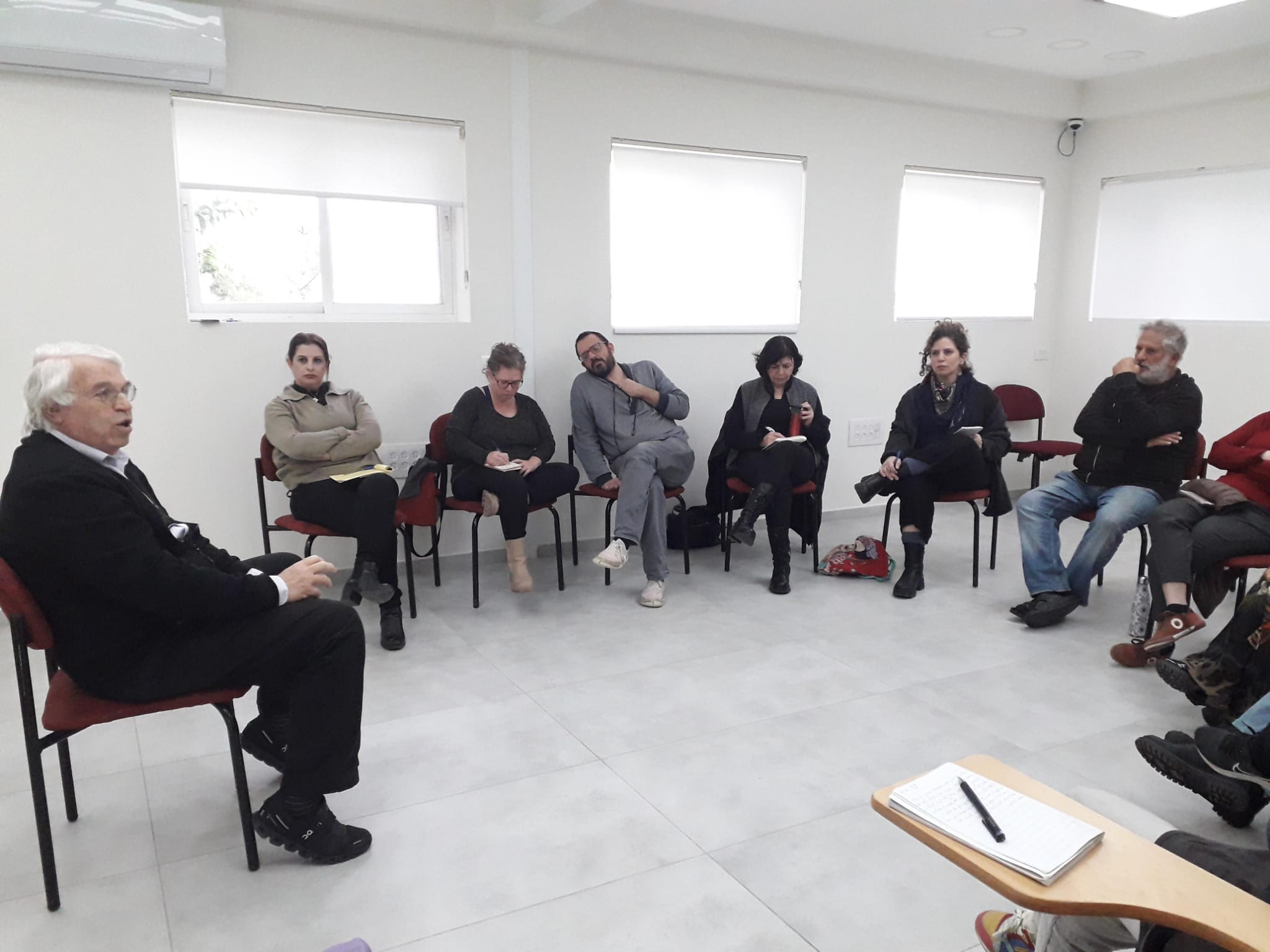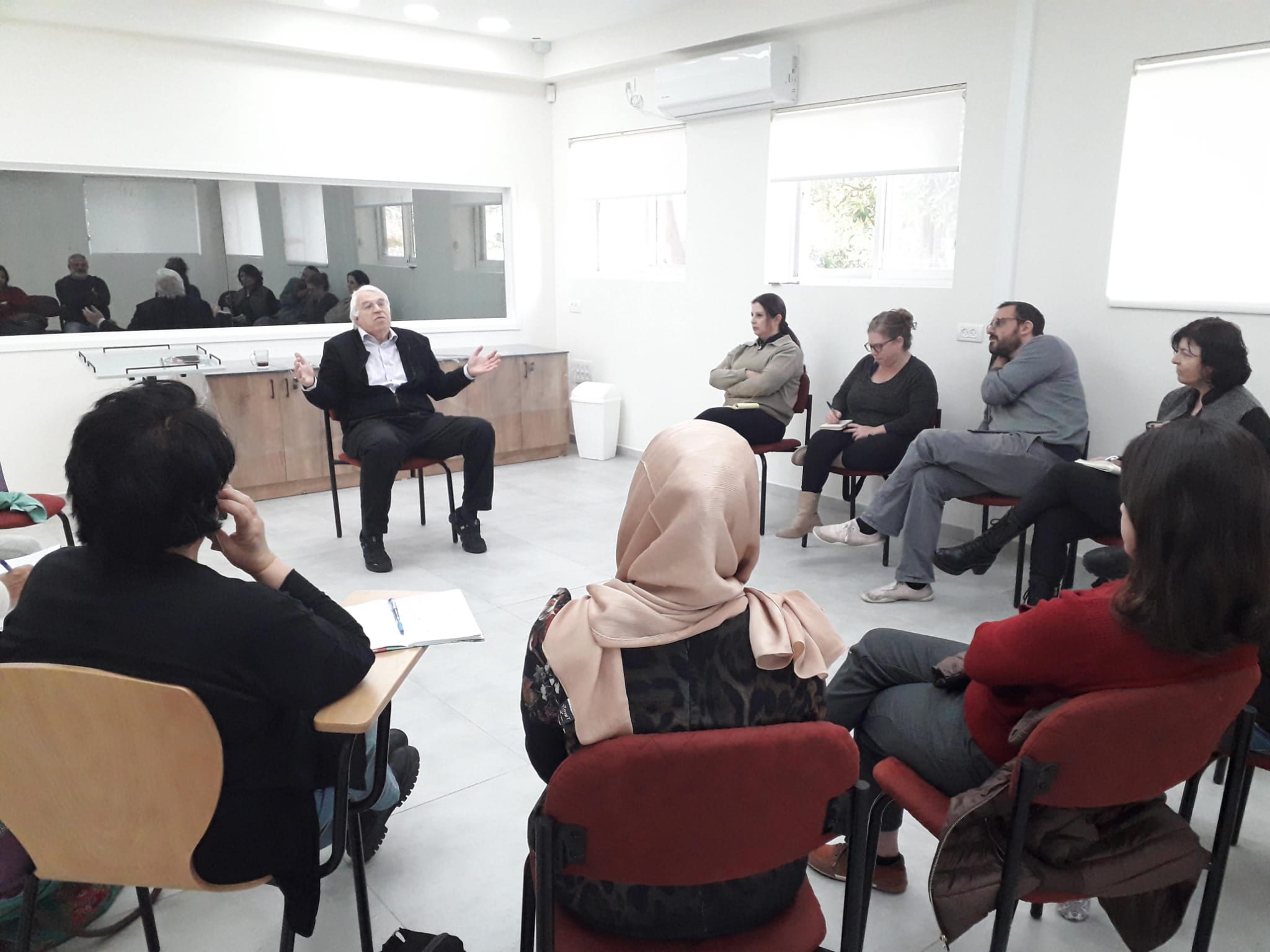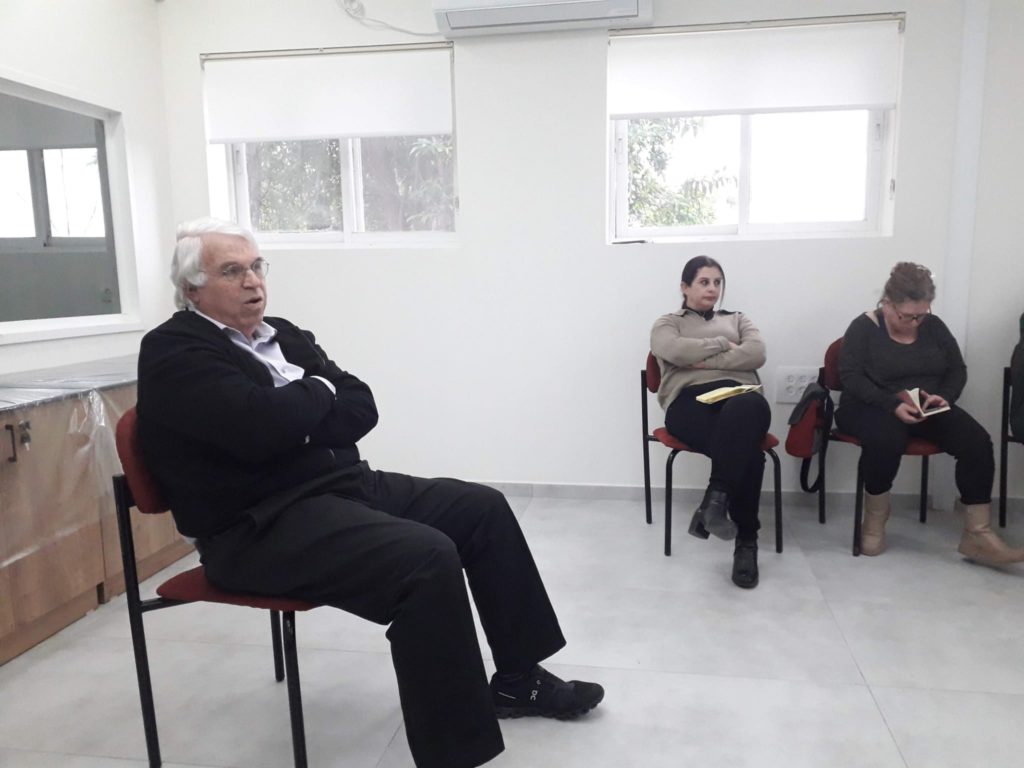First session of our new educational team training program
Recently, we have launched a new training program for our educational team, primarily composed of our dialogue facilitators, where we learn about various cases around the world in which conflicts underwent transformation.
As the war started in October, we felt a great need to educate ourselves about how other conflicts in history were shifted into peace and political agreements, focusing on what were the factors that affected that transformation.
In this training we are aiming at processing this knowledge into new tools that can help us in our political-educational mission in these challenging and extreme times. Basically we wish to make sure that our Jewish-Palestinian dialogue facilitation is relevant and that we take part in transforming our society from conflicted to peaceful, just and equal.
The plan entails a series of meetings, each consisting of two parts. During the initial segment, a lecture will be delivered by a specialist. Subsequently, in the second part, the knowledge acquired from the lecture will be processed by the SFP dialogue facilitators, guided by the question: “What can we learn from it for our educational-political work?”
In the first session we hosted professor Alon Liel, who gave us a lecture about “International Pressure, Sanctions and Boycotts: Their Role in Conflict Transformation, The Case of South Africa and a Comparative Look to our Case”. Liel is a former Israeli diplomat and an international relations expert. He was the Israeli ambassador in South Africa in the years of the end of the Apartheid and the change in government.

Here are some thoughts our facilitators shared following the meeting:
“We learned how in South Africa in the struggle against Apartheid – they were willing to pay a heavy price for their cause, life sentences etc. Our role as political educators to support that struggle is to educate our participants to develop awareness and a clear stand against injustice.”
“How do we ensure our impact as educators also contributes to building a healthy society in a sustainable way? We learned that in the change of government the black community received key positions but did not receive the appropriate skills and tools to do so, and we see the outcome today, when SA is not functioning well as a state. How do we educate a generation that can not only end the conflict but also lead a healthy functioning society for years to come?”
“Alon suggested 3 fields that the Israeli civil-society organizations are working in, separately: anti-occupation, shared society inside Israel (Jews and Arabs) and democracy building. The unique role of the School for Peace might be to bridge those three and educate other organizations that it is all connected.”


—

